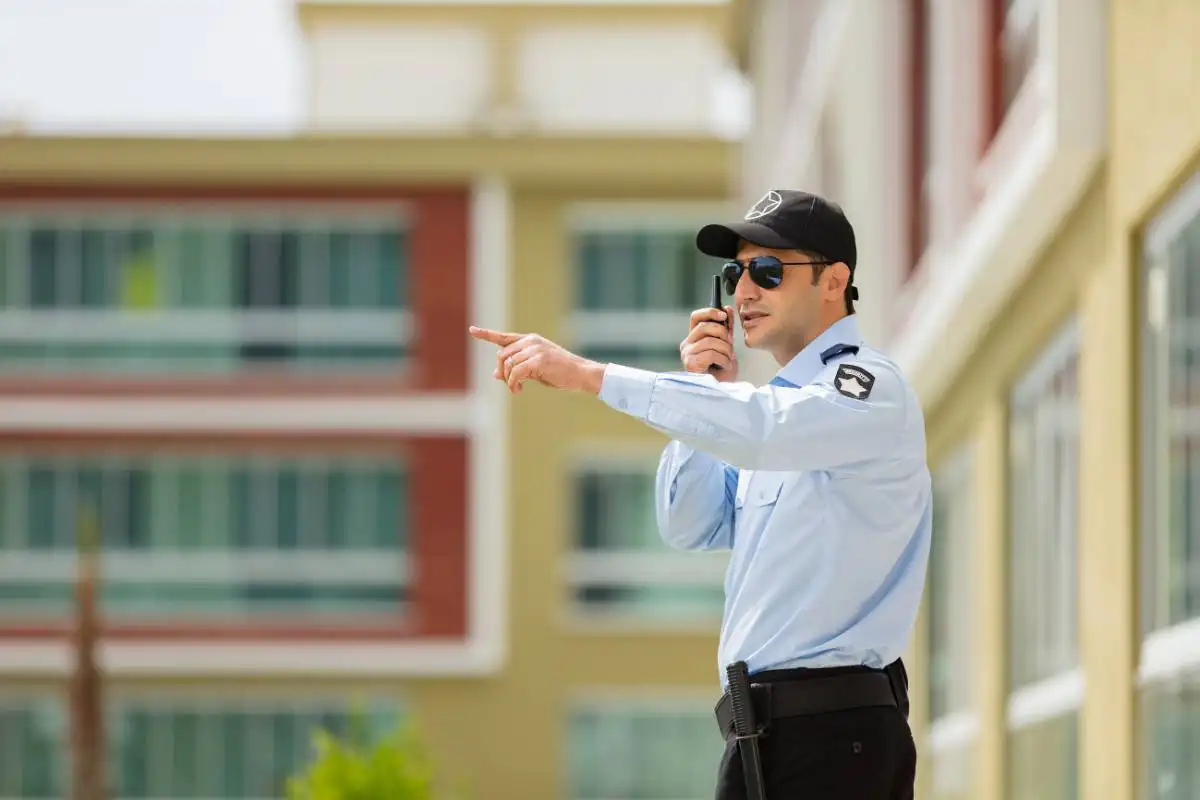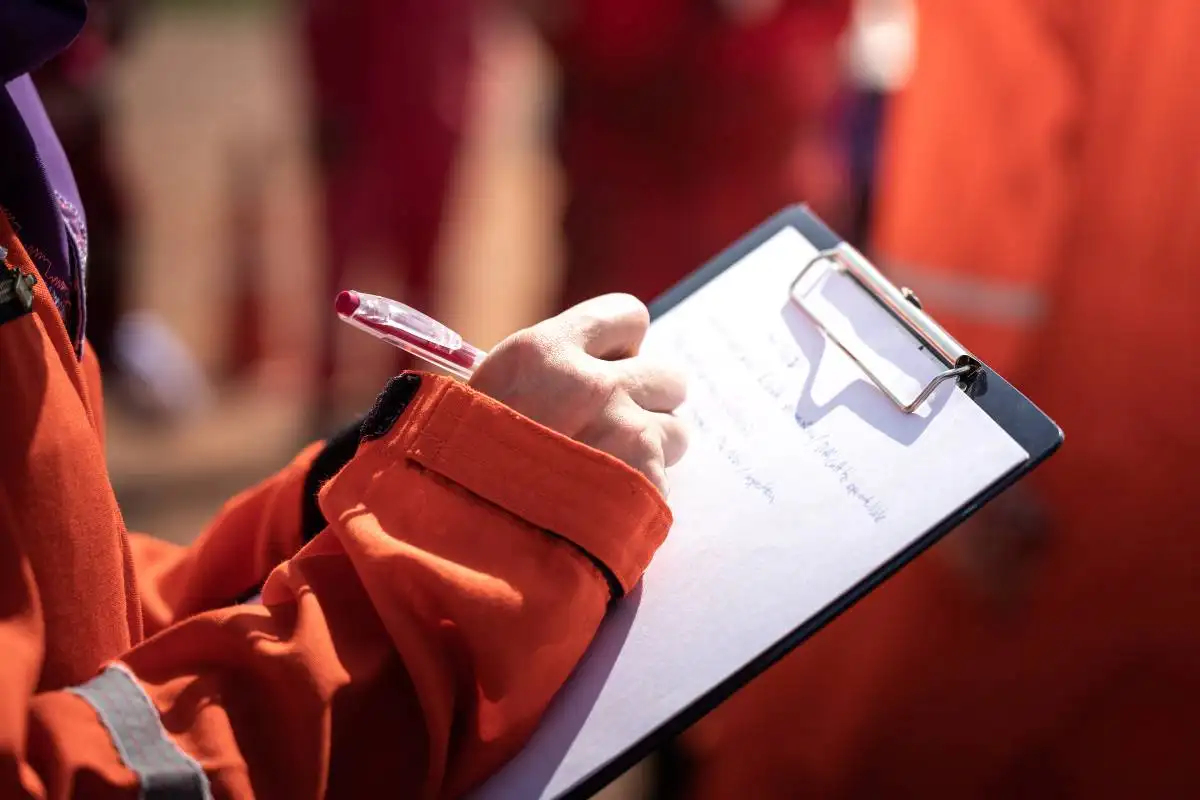Security guards play a critical role in maintaining safety and security in various settings, including residential, commercial, and industrial areas. They are responsible for monitoring premises, preventing unauthorized access, and ensuring the safety of people and property. In addition to these primary responsibilities, security guards may also be required to perform other duties such as:
- Conducting security checks and inspections
- Responding to alarms and emergencies
- Writing incident reports
- Providing customer service and assistance
- Enforcing rules and regulations
Qualities of an Effective Security Guard
To be an effective security guard, one must possess certain qualities and characteristics. These include:
- Alertness and attention to detail
- Good communication skills
- Physical fitness and stamina
- Ability to remain calm under pressure
- Good judgment and decision-making skills
- Integrity and honesty
- Respect for diversity and cultural sensitivity
Daily Duties and Routine
The daily duties of a security guard can vary depending on the setting and the specific job requirements. However, most security guards are expected to follow a routine that includes regular patrols, monitoring surveillance equipment, and interacting with visitors and employees. They may also be required to perform tasks such as:
- Checking identification and credentials
- Escorting individuals or packages
- Monitoring access points
- Responding to incidents and emergencies
Common Interview Questions

When preparing for a security guard interview, it is important to familiarize oneself with common interview questions that may be asked. By doing so, candidates can be better prepared to showcase their skills and experience.
Experience and Background
One common question that may be asked is about a candidate’s experience and background. Employers may ask about previous security positions held, as well as any relevant training or certifications. Candidates should be prepared to provide specific examples of how their experience and training have prepared them for the position.
Handling Difficult Situations
Another important area of questioning may focus on a candidate’s ability to handle difficult situations. Security guards are often faced with challenging and potentially dangerous situations, so employers want to know that candidates can remain calm and handle these situations appropriately. Questions may include scenarios such as dealing with an angry or aggressive individual or responding to a medical emergency.
Knowledge of Security Protocols
Employers may also ask questions to assess a candidate’s knowledge of security protocols. This may include questions about access control, emergency response procedures, and security technology. Candidates should be prepared to discuss their understanding of these protocols and how they would apply them in different situations.
Teamwork and Communication
Employers may ask questions about a candidate’s ability to work as part of a team and communicate effectively. Security guards often work in teams and must be able to communicate clearly and efficiently with colleagues, as well as with clients and other stakeholders. Candidates should be prepared to provide examples of how they have worked effectively in a team environment and how they have handled communication challenges in the past.
Scenario-Based Questions

During a security guard interview, scenario-based questions are often asked to assess the candidate’s ability to handle emergencies, resolve conflicts, and respond to theft and vandalism incidents. Here are some common scenario-based questions that may be asked during a security guard interview:
Dealing with Emergencies
Security guards are often the first responders during emergencies such as fires, medical emergencies, and natural disasters. Interviewers may ask candidates how they would handle such situations. A good answer should demonstrate the candidate’s ability to remain calm, follow protocols, and prioritize safety.
Conflict Resolution
Conflict resolution is a critical skill for security guards, who often have to deal with irate customers, trespassers, and other challenging situations. Interviewers may ask candidates how they would handle a conflict between two individuals, or how they would diffuse a situation where a customer is angry or upset. A good answer should demonstrate the candidate’s ability to listen actively, empathize with the parties involved, and find a peaceful resolution.
Theft and Vandalism Response
Security guards are responsible for preventing theft and vandalism, and responding to incidents when they occur. Interviewers may ask candidates how they would respond to a situation where a theft or vandalism is in progress, or how they would conduct an investigation into a theft or vandalism incident. A good answer should demonstrate the candidate’s ability to follow procedures, collect evidence, and communicate effectively with law enforcement.
Legal and Ethical Considerations

Security guards must have a thorough understanding of local laws and regulations. They should be aware of the legal boundaries that define their authority and responsibilities. For example, in some states, security guards are allowed to carry firearms, while in others, they are not. Similarly, some states allow security guards to detain suspects, while others do not.
Security guards need to be familiar with the laws that apply to their job, as they could face legal consequences for violating them. They should also be aware of the legal rights of the people they are protecting, as well as their rights as security guards.
Ethical Dilemmas in Security
Security guards often face ethical dilemmas in the course of their work. For example, they may be asked to enforce rules that they do not agree with or to use force against someone who is not posing a threat. In such situations, security guards need to act professionally and ethically.
Security guards should always prioritize the safety and well-being of the people they are protecting. They should also be respectful and courteous, even in difficult situations. If they are unsure about how to handle a particular situation, they should seek guidance from their supervisor or consult the company’s code of ethics.
Privacy and Surveillance
Security guards are often responsible for monitoring surveillance cameras and other security systems. They must be aware of the privacy rights of the people they are monitoring and ensure that they are not violating those rights.
Security guards should also be aware of the laws that govern surveillance and privacy. For example, in some states, it is illegal to record audio without the consent of all parties involved. Similarly, security guards should be careful not to invade the privacy of individuals by monitoring areas where they have a reasonable expectation of privacy, such as restrooms or changing rooms.
Professional Development
As a security guard, professional development is crucial to advancing in the field and staying current with security trends. This section will cover some key areas of professional development for security guards.
Advancement Opportunities
Security guards have many opportunities for advancement, including becoming a supervisor or manager. Some ways to advance in the field include gaining experience in different areas of security, earning additional certifications, and pursuing higher education.
Continuing Education
Continuing education is important for security guards to stay up-to-date with the latest security trends and techniques. Some examples of continuing education opportunities include attending workshops or seminars, taking online courses, and participating in professional organizations such as the International Association of Professional Security Consultants (IAPSC).
Staying Current with Security Trends
Staying current with security trends is essential for security guards to remain effective in their role. It is important to keep up with new technologies and techniques, as well as changes in laws and regulations. Some ways to stay current with security trends include reading industry publications, attending conferences, and networking with other security professionals.
- 09 Steps Guide to Writing Security Incident Reports - October 24, 2024
- What A Security Guard Might Check From You - October 24, 2024
- What Can Security Guards Legally Do And Can’t Do - October 24, 2024
